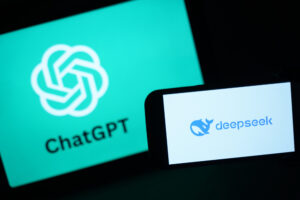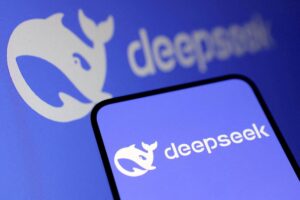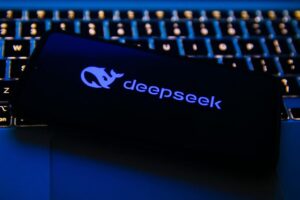AppSOC Research Labs Issues Critical Assessment of DeepSeek-R1

AppSOC’s Concerns About DeepSeek-R1 AI Model
Silicon Valley security firm AppSOC has raised alarms about the DeepSeek-R1 AI model from the Chinese startup DeepSeek. They have labeled it a "high-risk model unsuitable for enterprise use" and warned companies against utilizing it, particularly for applications that handle personal or sensitive data.
The Importance of Cybersecurity in AI
The market for AI security is rapidly expanding, projected to reach about $255 million by 2027. While businesses continually seek cutting-edge technologies, the risks associated with cybersecurity remain a significant barrier to the widespread adoption of artificial intelligence. Companies are taking great care to evaluate which AI models are safe to integrate, given the potential financial and reputational fallout from a data breach.
Overview of DeepSeek-R1
DeepSeek-R1, or R1, is a large language model (LLM) developed by DeepSeek. It serves as the backbone for their chatbot, which competes with established players like ChatGPT. With approximately 670 billion parameters, R1 claims to be the largest open-source LLM available. Its affordability compared to models from U.S. giants like OpenAI, Google, and Meta adds to its appeal.
Earlier this year, Microsoft made DeepSeek-R1 accessible through Azure AI Foundry and GitHub, heralding its integration into the Azure ecosystem as part of their commitment to provide secure and compliant AI solutions. However, AppSOC’s research contradicts this assurance.
Testing DeepSeek-R1: The Findings
AppSOC Research Labs conducted tests on the Azure-hosted version of DeepSeek-R1, both with and without Azure’s content filters. Their results indicated minimal improvement in safety when utilizing the filters, showing an aggregated risk score of 8.3/10 compared to 8.4/10 when the filters were active.
Supply Chain Risks
In the area of supply chain risks, DeepSeek-R1 exhibited problematic behavior by providing unsafe software package recommendations. Interestingly, the presence of Azure filters seemed to worsen this issue, increasing the model’s failure rate from 5.8% without filters to 6.9% with them. This suggests that the filters may interfere with the model’s performance negatively in certain situations.
Malware Generation
The ability of AI models to generate harmful code is a critical area of concern. DeepSeek-R1 failed malware generation tests 96.7% of the time without filters and 93.8% with filters—a significant risk according to AppSOC. While the filters reduced the risk slightly, the model remained highly susceptible to generating malicious prompts.
Prompt Injection Vulnerabilities
Prompt injection is another pressing concern where prompts can bypass safety protocols and lead to unauthorized actions. Failure rates for prompt injections were remarkably high, with 57.1% failures without Azure filters, reduced to 40% with filters. According to AppSOC, even a 40% failure rate is unacceptable for enterprise-level use.
Insights from AppSOC
Mali Gorantla, AppSOC’s Chief Scientist and Co-Founder, highlighted the findings, reinforcing the unacceptable risk level associated with DeepSeek-R1. Although Azure’s filters provide some safety features, the model is still considered too risky for enterprises. The report emphasizes that while the model may have been celebrated for its rapid development, it requires significant refinements before being suitable for broad organizational deployment.
In summary, organizations must be vigilant when selecting AI models for deployment, especially when the stakes involve sensitive information or personal data. The concerns surrounding DeepSeek-R1 illustrate the critical need for comprehensive cybersecurity measures in the rapidly evolving field of artificial intelligence.






